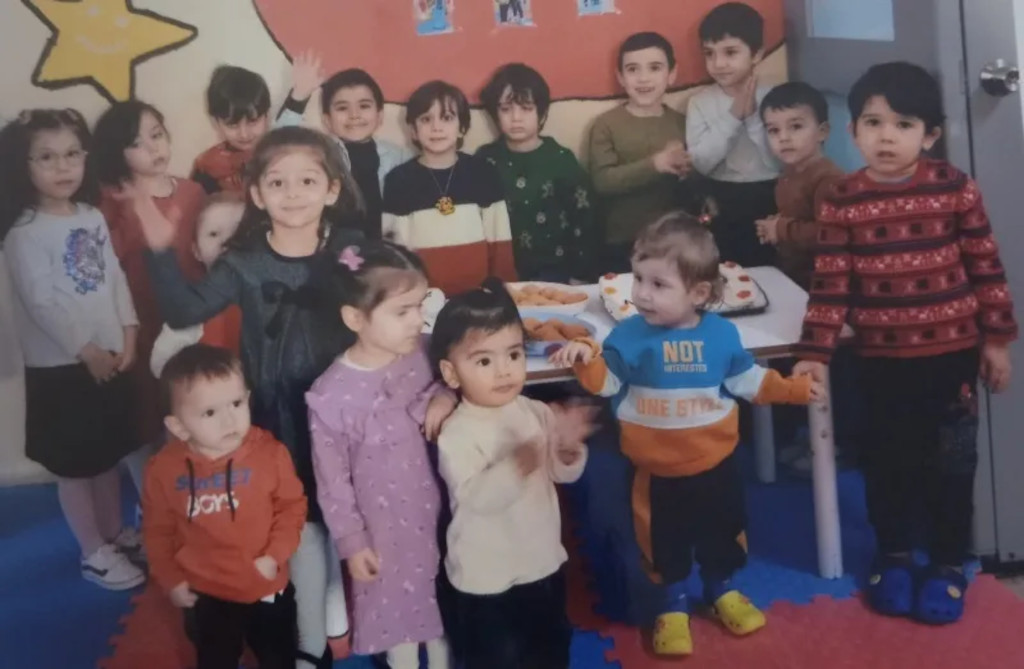A recent photograph taken in western Turkey’s Izmir’s Şakran Prison has revealed the large number of children who were made to accompany their mothers in prison, the Stockholm Center for Freedom reported, citing the Bold Medya news website.
The photograph was reportedly taken during a birthday celebration of one of the children. According to the prison administration there are currently 26 children under the age of 6 in Şakran Prison, and most of them are the children of political prisoners. Political prisoners have their own ward, and they are separated from other inmates.
However, they have complained that their wards have become overcrowded, especially because of the number of children who stay with them.
“Our ward has two floors, and the children often fall down the stairs. Some children were even injured after falling,” said one inmate. “The entrance to the ward is where the children play, but it is also where we cook and eat. So everything is very crowded.”
Each cell is designed for two inmates, but when children accompany their mothers the number of people sharing the same cell rises to four or five.
Şakran Prison has been previously criticized for its poor conditions. Inmates have complained of overcrowding, sickness and neglect.
They said the children were continuously sick and did not have enough personal space. The age gap between the children was also wide, ranging from 20-month-old toddlers to 5-year-old children.
In a recent statement posted on Twitter, the Directorate General of Prisons and Detention Centers claimed mothers and children were well cared for. Each ward has 11 cells, which are arranged so they host only two mothers and their child, it said. According to the statement each ward has a play area, a daycare center, a teacher and a child psychologist. The directorate denied there was a large number of inmates and children sharing the same ward.
However, inmates said the ward with children was disorganized and exhausting.
As of December 2021 there were 548 children in prison with their mothers. Human rights advocates have said children accompany their mothers in prison at very young ages, which are often critical periods in their mental and physical development. However, children are not provided basic needs such as crayons or toys. Some cells are not provided with a carpet for crawling babies, and inmates make makeshift rugs out of blankets. Many children do not have their own beds and share their mothers’ food.



